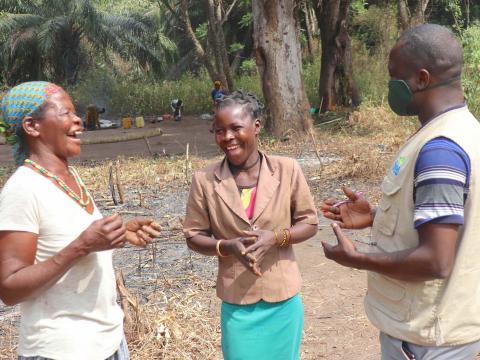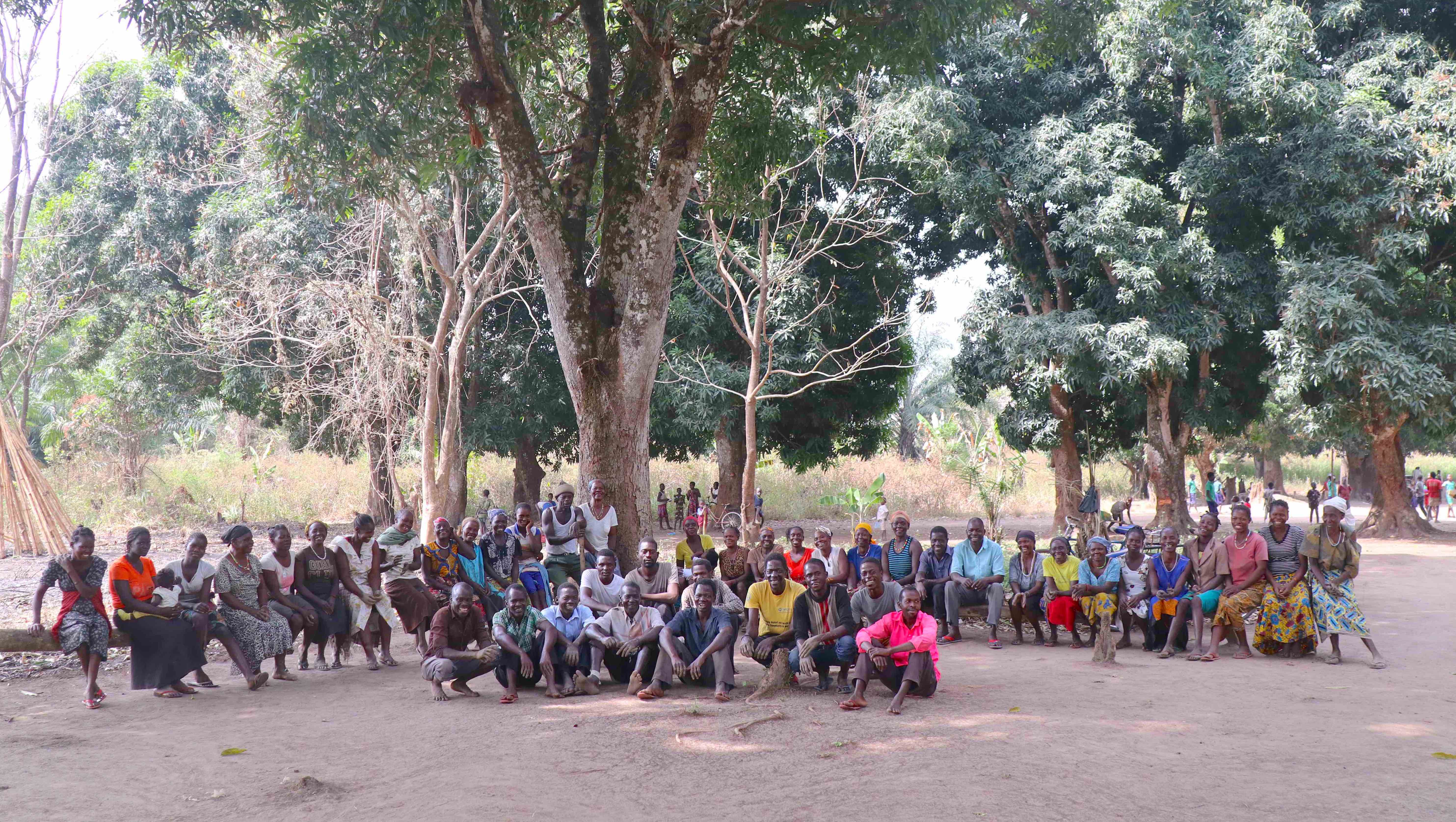Uplifting South Sudan women’s voices in decision-making and leadership

Mikelina Serezio, is a 30-year old mother of two from South Sudan’s Yambio County, a part of Western Equatoria State. Mikelina, who now chairs the Nagurudi Farmer’s Field Business School, never thought a woman like her could be a leader and make decisions.
Mikelina said it is usually the men who make decisions and women do the work. “We grew up knowing that a woman’s place is in the kitchen. Once married, we follow what the men decide”, she explains.

Together with Severina Philipo, 50-years-old and a mother of six, Mikelina leads a farmers’ group composed of 50 women and men in their community.
World Vision's Fortifying Equality and Economic Diversification (FEED) II Project, funded by Global Affairs Canada (GAC), is implemented in partnership with CARE and War Child, aims to improve livelihoods and help South Sudan combat hunger.
It also trains the women led by Mikelina and Severina with leadership skills and how to have rich conversations with farmers about gender equality without making the men uncomfortable or feel guilty.

Using a variety of interactive and entertaining activities, the participants reflect and learn the role of women and men in their community.
“My husband was afraid that I would not be accepted and respected as a leader. That was also my fear. But the skills I gained from World Vision made me realize that I have a role to play”, Mikelina shares.
People are used to individually in the community. This has changed when the group was organized. She said that working as a group encouraged them to interact and share issues.
We are so happy to have women in positions of leadership. It is important that we support them with skills and resources to succeed.
She adds, “In one year, I have advocated for the inclusion of women in decision-making. I can confidently attest of how vibrant women’s participation have become in decision-making within families and the community.”
The farmers’ group received maize and green gram seeds to boost their livelihoods and support their families. “In a year, we harvested 140 bags at 50kgs each of maize and green gram and earned SSP 847,000 (around USD1,880). This was the first time and got us inspired”, she shares.

“Women are now able to support their husbands for the family needs and pay for the children’s school fees. World Vision’s intervention gave us the courage as mothers to send our girls to school and not get married”, Severina says.
“We share the income among the group and use part of it to buy construction materials for the granary where we can store our farm produce. We were still able to save SSP 200,000 (USD440). It was an achievement for us”, Severina happily adds.
Mary Nelson, 25-year-old, also shares, “Women have stepped up and our voice was heard. Severina and Mikelina are great leaders and we have learned so much from them.”

Alana Mascoll, the FEED II Chief of Party, says, “We are so happy to have women in positions of leadership. It is important that we support them with skills and resources to succeed. A lot of women do not believe in their own ability to lead. By providing them with training and guidance helps build their confidence.”
“We hope that women who lead their farming groups will also start to lead more activities in their communities and be examples for their girls in their area”, Mascoll concludes.

Main photo: Mikelina and Severina share their leadership experience with World Vision’s protection staff Ginana.
Story and photos by Scovia Faida Charles Duku, Communications Coordinator